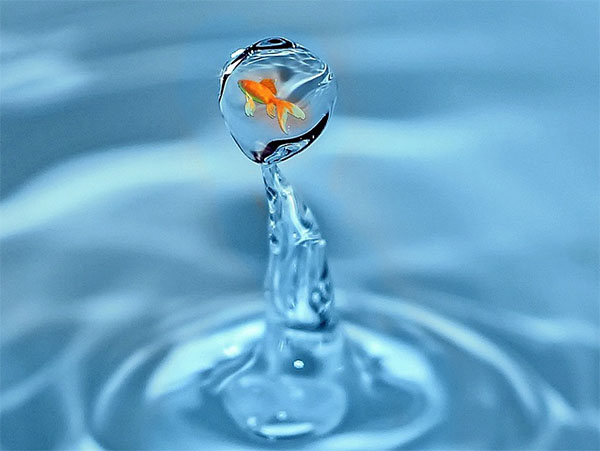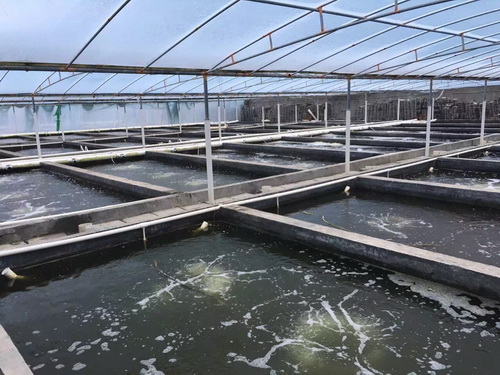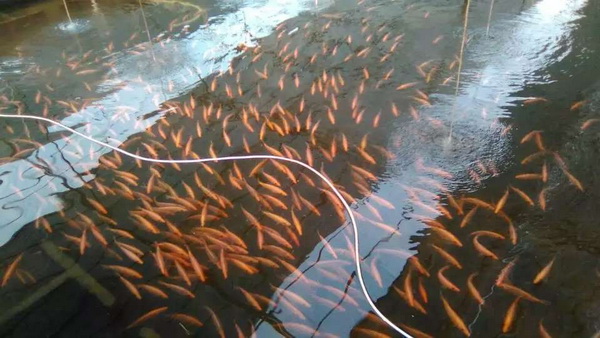Water hardness, which is very important for all farmers, do you know?
The total hardness of water refers to the total concentration of calcium and magnesium ions in water, including carbonate hardness and non-carbonate hardness.
Carbonate hardness
 Carbonate hardness: mainly formed by calcium and magnesium bicarbonate {Ca (HCO3) 2, Mg (HCO3) 2} hardness, and a small amount of carbonate hardness.
The hardness of carbonate is also known as temporary hardness because it is decomposed into precipitate and removed from water after heating.
Non carbonate hardness: hardness formed mainly by calcium and magnesium sulfate, chloride and nitrate salts.
This kind of hardness can not be removed by heating decomposition method, so it is also permanent hardness, such as CaSO4, CaCI2, MgCI2, Ca (NO3) 2, Mg (NO3) 2, etc.
Total hardness: the sum of carbonate hardness and non-carbonate hardness, total hardness = calcium hardness + magnesium hardness + non-carbonate hardness:
Calcium hardness: Ca2+ content in water;
Magnesium hardness: content of Mg2+ in water;
Negative hardness: The difference between water when their total hardness is less than their total alkalinity.
Carbonate hardness: mainly formed by calcium and magnesium bicarbonate {Ca (HCO3) 2, Mg (HCO3) 2} hardness, and a small amount of carbonate hardness.
The hardness of carbonate is also known as temporary hardness because it is decomposed into precipitate and removed from water after heating.
Non carbonate hardness: hardness formed mainly by calcium and magnesium sulfate, chloride and nitrate salts.
This kind of hardness can not be removed by heating decomposition method, so it is also permanent hardness, such as CaSO4, CaCI2, MgCI2, Ca (NO3) 2, Mg (NO3) 2, etc.
Total hardness: the sum of carbonate hardness and non-carbonate hardness, total hardness = calcium hardness + magnesium hardness + non-carbonate hardness:
Calcium hardness: Ca2+ content in water;
Magnesium hardness: content of Mg2+ in water;
Negative hardness: The difference between water when their total hardness is less than their total alkalinity.
 Hardness of aquatic organisms is the main role of water bodies
1. Ca2+ and Mg2+ in water are closely related to the life activities of aquatic organisms.
Calcium is one of the important elements of animal skeleton, carapace and plant cell wall. Calcium deficiency will cause stunted growth of animals and plants, especially restricting the reproduction of algae.
Magnesium is a component in chlorophyll and plays an important role in sugar metabolism. The synthesis of RIbonucleic acid in the cells of plants lacking magnesium will stop, and the nitrogen metabolism is chaotic. Magnesium deficiency will also affect the absorption of calcium by algae.
Hardness of aquatic organisms is the main role of water bodies
1. Ca2+ and Mg2+ in water are closely related to the life activities of aquatic organisms.
Calcium is one of the important elements of animal skeleton, carapace and plant cell wall. Calcium deficiency will cause stunted growth of animals and plants, especially restricting the reproduction of algae.
Magnesium is a component in chlorophyll and plays an important role in sugar metabolism. The synthesis of RIbonucleic acid in the cells of plants lacking magnesium will stop, and the nitrogen metabolism is chaotic. Magnesium deficiency will also affect the absorption of calcium by algae.
 2, increase the buffering of water quality.
If the total hardness of water is between 350 and 500mg/L (CaCO3), the pH value of water and substrate is stable, and the energy to resist weather changes is strong. Therefore, the protection of water hardness is the main means to resist substrate aging and acidification.
3, reduce the toxicity of heavy metals.
When the water hardness was higher, calcium and magnesium ions antagonized with heavy metal ions, and reduced the absorption of metal ions by shrimp, thus reducing its toxicity.
4, aquaculture seawater has enough Ca2+, Mg2+ content can promote organic 䋈 coagulation, coagulation, promote nitrogen fixation and microbial activities.
Accelerate the mineralization of organic matter, accelerate the circulation and regeneration of inorganic matter, alleviate the acidification of water quality and substrate.
Water hardness deficiency
The physiological activities of peeling and solidifying the shell of prawn are blocked, which leads to the phenomenon of hard peeling and soft shell, which is one of the main causes of the disease of prawn when the water hardness is insufficient.
Methods to improve water hardness:
Calcium hydrogen phosphate and magnesium sulfate are added to the water body irregularly to improve its hardness.
Calcium hydrogen phosphate and magnesium sulfate are also the best fertilizers to promote the growth and reproduction of algae, stabilize pH, and promote the balance between algal and bacterial phases.
It can be used according to the determination of water hardness. 1.5 kg calcium hydrogen phosphate and 2 kg magnesium sulfate are used each time according to 1m water depth per mu.
2, increase the buffering of water quality.
If the total hardness of water is between 350 and 500mg/L (CaCO3), the pH value of water and substrate is stable, and the energy to resist weather changes is strong. Therefore, the protection of water hardness is the main means to resist substrate aging and acidification.
3, reduce the toxicity of heavy metals.
When the water hardness was higher, calcium and magnesium ions antagonized with heavy metal ions, and reduced the absorption of metal ions by shrimp, thus reducing its toxicity.
4, aquaculture seawater has enough Ca2+, Mg2+ content can promote organic 䋈 coagulation, coagulation, promote nitrogen fixation and microbial activities.
Accelerate the mineralization of organic matter, accelerate the circulation and regeneration of inorganic matter, alleviate the acidification of water quality and substrate.
Water hardness deficiency
The physiological activities of peeling and solidifying the shell of prawn are blocked, which leads to the phenomenon of hard peeling and soft shell, which is one of the main causes of the disease of prawn when the water hardness is insufficient.
Methods to improve water hardness:
Calcium hydrogen phosphate and magnesium sulfate are added to the water body irregularly to improve its hardness.
Calcium hydrogen phosphate and magnesium sulfate are also the best fertilizers to promote the growth and reproduction of algae, stabilize pH, and promote the balance between algal and bacterial phases.
It can be used according to the determination of water hardness. 1.5 kg calcium hydrogen phosphate and 2 kg magnesium sulfate are used each time according to 1m water depth per mu.
Conclusion: Therefore, enough hardness in water can reduce a lot of problems in the process of breeding.




